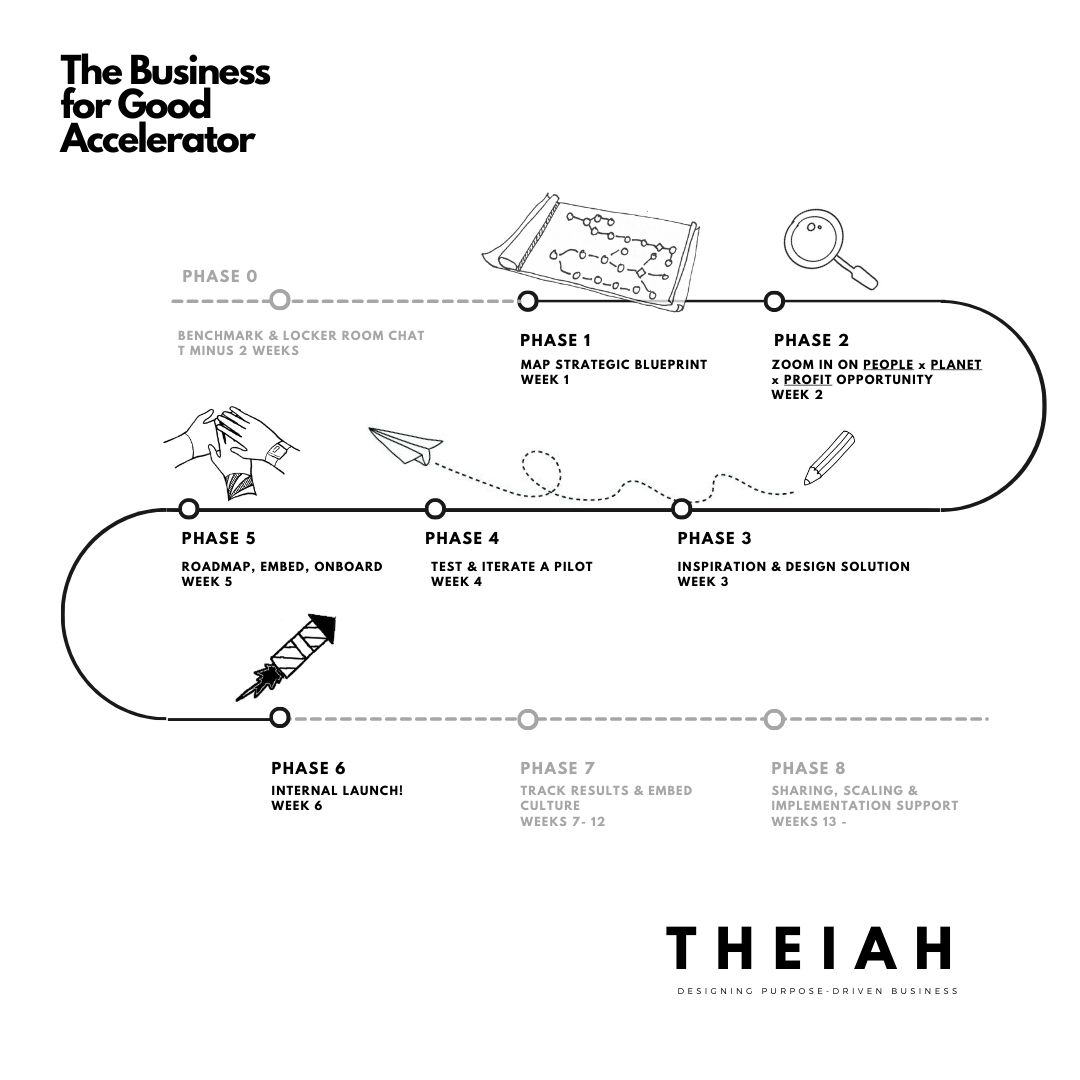A start-up project: launching an accelerator for sustainable innovation
Big, whole company transitions are hard. And risky! Small bets and pilot projects to test the waters are another way to change. And more fun!

In March 2020, as the pandemic hit and "new normal" became the go-to phrase, I heard from many companies trying to figure out how they could integrate sustainability and social impact naturally into business strategy. And I realised I could use my experience with start-ups and innovation to help them transition. So I started Theiah, a project to accelerate the transition to sustainable business.
If you'd like to browse the project for yourself, you can see the website and programs here (now embedded into this site).
Instead of developing some big overarching plan with companies (thinking and theory first, action later - quite risky and slow), an alternative model of business transformation is using pilot projects as a catalyst, running dedicated tiger teams, then scaling successes (a little well-planned theory, then iterative loops of thinking and doing at the same time). I call this method "acupuncture innovation". I ran 4-6 week accelerator programs helping companies to embed change in this way:
- First, identify where sustainability and social impact were most materially relevant to their business (see The Business Case for Sustainability).
- Next, ideate opportunities and prioritise one that is highly relevant, impactful and able to be launched within 12 months - very important to maintain interest and momentum inside the company.
- Develop an implementation plan - and following the accelerator, I have regular coaching calls for the following 10 months, covering testing, launch and iteration.
- Scale success! Learn what worked and what didn't; scale the pilot through the company and move on to the next opportunity in the backlog. With a real pilot and tangible results, employees are much more likely to be on board with change.
Results:
- Change happened! The Theiah project ran successfully for 18 months, with some incredible results, proving out the theory of change. Every company I worked with successfully launched something (although sometimes not the same something they started out with) and went on to use the learnings as a catalyst for ongoing change.
- People, planet, and profit - a three-legged stool. Interestingly, the highest uptake was from Not-For-Profit companies and social enterprises - those who already had a mission-based organisation, but needed a commercially viable business model to be self-sufficient.
- It lifted me too. This was was an inspiring experience; an incredible privilege to work with, and learn from some amazing companies and teams. The shared sense of purpose I felt from participants was powerful. Trying to d something differently from the status quo is at times, a difficult road. So I too needed this proof of how many people want to change the world for the better; good intentions just need a starting point and a few eager friends.
